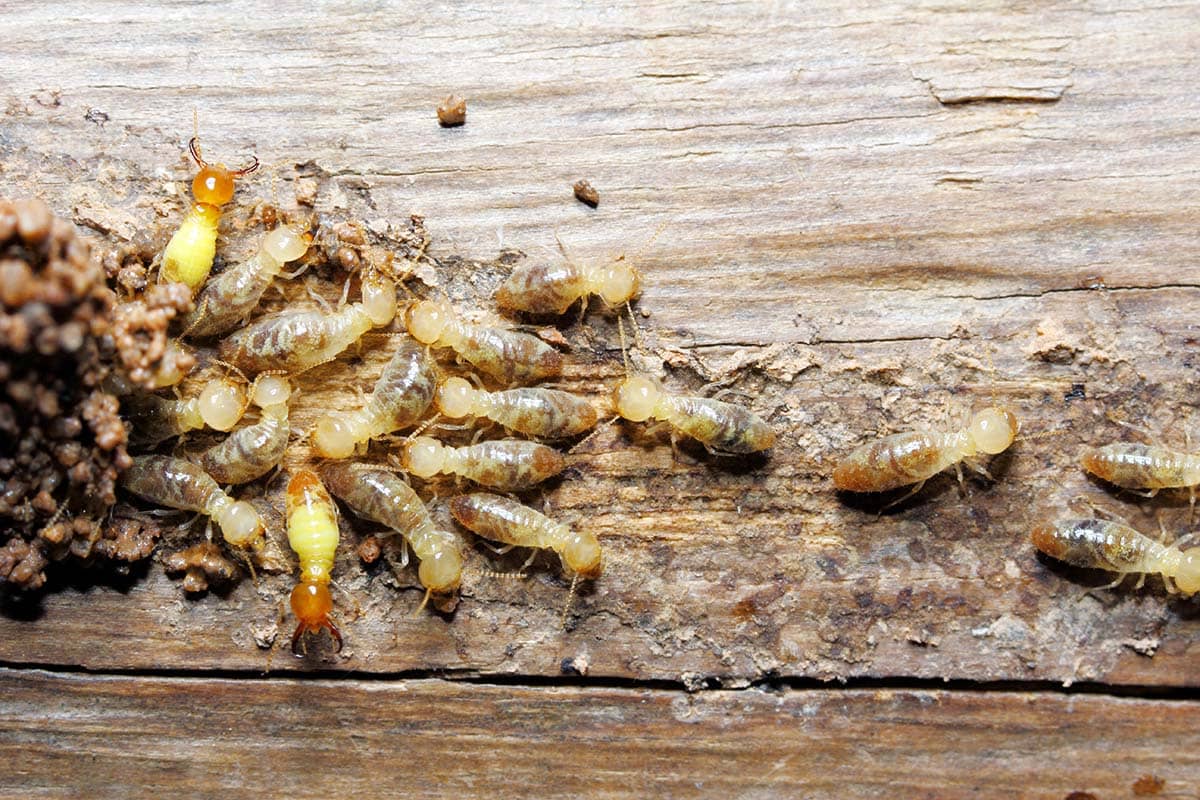Termites cause extensive damage to property. In fact, one study estimated a cost of $2 billion annually in the United States just to keep them under control.
It’s important to be aware of the signs of termite infestation, so you can get the problem under control as fast as possible.
Read on to discover some of the red flags that may indicate you have a termite problem.
Damage to Paint or Wallpaper
Termites make small tunnels that they travel through, and each tunnel has a small exit hole. If you notice discolored paint or wallpaper, it may be a sign that termites have made your home their own.
Most people don’t notice this sign until they do some painting or remove old wallpaper. Keep a close eye on the interior walls of your home to look for unusual discoloration of paint.
When termites build their tunnels under your paint or wallpaper, it will cause bubbling. Look for unusual textures or colors on your walls that seem odd or out of place.
While these aren’t always signs of termite infestation, it could be a possibility. Dented, sunken areas or tiny thin lines on your walls may mean that these pests are lurking just under the surface.
Signs of Termite Infestation: Issues with Doors and Windows
One of the most popular places for termites to feast is within the door or window frames of a home. The wood is usually exposed in these locations, providing easy access from the inside and outside.
As the termites start to eat the wood away, you may start to notice tight-fitting doors or windows. That’s because the pests are causing the frames to warp. You’ll start to notice that opening and closing your doors and windows is more difficult.
Another common problem related to doors and windows is when the frames suddenly appear to have cracks or feel brittle to the touch. Once termites eat these areas, the wood will be extremely weak, causing them to fall apart.
If you suspect that you might have termites, gently prod a small section of your door or window frame with a screwdriver. If the wood feels brittle, soft, or spongy, then you may have a termite issue.
Remember that humidity and moisture can cause wood to rot, so it may not be termites. However, it’s best to inspect these areas if you’re having issues just to be safe. Other serious red flags include crumbling baseboards or sagging floors.
Unusual Sounds
Termites don’t buzz as loudly as bees do, but if there are enough of them, you might start to hear them. Listen carefully for a clicking noise in the walls that sounds out of the norm.
Some common termite-associated sounds include rustling, clicking, or rattling. These noises occur when the pests start to travel through wood looking for a food source.
Some termite species will hit their heads against tunnel walls, which emits a rattling sound. They do this to create vibrations in order to warn their fellow termites of approaching danger.
Worker termites can also make strange rustling or clicking noises with their mouths as they dig a tunnel. In other cases, you may hear entire swarms buzzing about. This noise is most common during the spring, which is the mating season for termites.
You can also tap on wood to listen for a hollow sound. As the termites dig their tunnels in walls, floors, or ceilings, they leave an empty space behind. if you hear clicking, rustling, or notice hollow areas in wood, contact the professionals immediately so they can perform a thorough termite inspection.
Mud Tubes or Kick Holes
While not all signs of termite infestation are visible, some are easy to spot with the naked eye. If you notice tiny, thin tubes of mud near your home’s foundation, you could have a termite problem. These tubes are usually about the width of a pencil or thinner.
Subterranean termites build their nests underground and come up to look for food. They build small tunnels made of mud to help protect them from exposure to cool, dry air as they travel.
Inspect the foundation of your home near the ground to look for tiny mud tubes. If you see them, it could be time to call in a professional exterminator.
Another sign of a termite problem is tiny “kick holes.” These holes are about the size of a pinhole and are often made by termites that feast on dry wood.
Once the termites build their nest, they create these small holes to kick the droppings out. The holes are usually approximately one millimeter in diameter. If the hole is larger, you may have a different pest, such as wood-boring beetles.
Another red flag is if you see tiny bits of wood piling up around these tiny holes. When the termites push their droppings out of the kick holes, it piles up down below. Inspect baseboards, door and window frames, and corners of your home to look for small piles of discarded droppings (or wood).
Don’t Become a Victim of Termites
Keep these signs of termite infestation in mind if you live in the Lincoln area, and make sure you call the professionals at Pegasus Pest Control. Once you’re aware of the red flags, you can get the situation under control much more quickly.
If you live in Lincoln, CA, be sure to visit our services page to find out more about how we can help you today.
Schedule a Termite Inspection Today
Official Pest Prevention is a family-owned, licensed pest control company celebrating 20 years serving over 100,000 satisfied customers in five area codes throughout Northern and Central California. Starting with a few contacts, and only four full-time employees, our small company has grown into an organization that today employs over 100 people, maintains a fleet of 75 vehicles, and has serviced over 100,000 Northern California households. This tremendous growth has come from loyal customers, who have recommended our work to their friends, family, and neighbors.
We are a full-service pest control company. Whatever your pest problem, we have a solution. Our goal is to make your property pest-free. Guaranteed. Contact us online or by phone (877) 711 2847 – for immediate assistance. Same-day bookings and flexible payment plans available – because pest invasions wait for no one.



